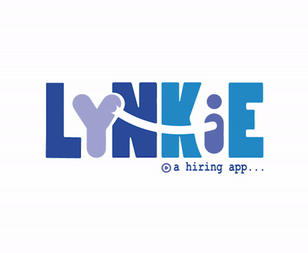Latest Hiring


May 10, 2024
What Are The Latest Hiring Trends Shaping Job Seekers' Experiences?
You’ve secured your resume, written the perfect cover letter, and now you’re ready to navigate the ever-evolving landscape of job searching. With the job market constantly changing, it’s crucial to stay informed about the latest hiring trends that are shaping the experiences of job seekers. Understanding these trends can give you a competitive edge and help you tailor your job search strategy to align with what employers are looking for. In this blog post, we will explore the current hiring trends that job seekers need to be aware of to increase their chances of landing their dream job.
The Rise of Remote and Hybrid Work
Impact on Job Seekers
Work environments have undergone a significant shift with the rise of remote and hybrid work options. Job seekers now have the flexibility to apply for roles that may be located in different cities or even different countries, opening up a wider range of opportunities. This shift has also highlighted the importance of digital skills and the ability to work independently, as remote communication and collaboration become crucial in the modern workplace.
Adapting to New Work Environments
Seekers must adapt to these new work environments by honing their time management and communication skills. The traditional nine-to-five workday is evolving, with companies embracing flexible schedules to accommodate remote and hybrid work models. Job seekers who can demonstrate their ability to manage their time effectively and communicate clearly in a virtual setting will be highly sought after by employers.
Technology in Hiring Processes
It's necessary for job seekers to stay updated on the latest hiring trends to navigate the job market successfully. According to 17 Recruiting Trends That Are Shaping 2024, technology plays a crucial role in shaping hiring processes and job seekers' experiences.
Artificial Intelligence and Automation
The utilization of Artificial Intelligence (AI) and automation in hiring processes is revolutionizing recruitment practices. AI algorithms can efficiently screen resumes, analyze candidate profiles, and even conduct initial interviews. Automation simplifies repetitive tasks, allowing recruiters to focus on strategic decision-making. Job seekers need to adapt by optimizing their resumes for AI screening and showcasing relevant skills for automated assessments.
Virtual Interviewing and Onboarding
With the rise of remote work, virtual interviewing and onboarding have become common practices. Job seekers must familiarize themselves with video interviewing platforms and ensure a professional setup for virtual meetings. Virtual onboarding processes involve digital paperwork, online training modules, and remote team introductions. It is crucial for candidates to demonstrate adaptability and communication skills in virtual environments to make a positive impression on employers.
Diversity, Equity, and Inclusion (DEI) Initiatives
DEI in Recruitment Strategies
Any successful recruitment strategy today must prioritize Diversity, Equity, and Inclusion (DEI) initiatives to attract top talent. Companies are increasingly recognizing the importance of creating a diverse and inclusive workforce, not only to reflect the broader society but also to foster innovation and better decision-making within the organization. Implementing DEI practices in recruitment means actively seeking out and welcoming candidates from varied backgrounds and underrepresented groups.
The Role of Employer Branding
Initiatives to enhance employer branding play a crucial role in attracting diverse talent. Employer branding encompasses how a company is perceived by both its current employees and potential candidates. By showcasing a commitment to DEI initiatives in recruitment efforts, companies can position themselves as inclusive and appealing workplaces for a diverse pool of candidates. Understanding the impact of employer branding on DEI efforts is important for companies looking to build a more diverse and inclusive workforce. A strong employer brand can not only attract top talent but also retain employees from diverse backgrounds by fostering a sense of belonging and inclusion within the organization.
Skills-Based Hiring
Shift Away from Traditional Credentials
One of the latest trends shaping job seekers' experiences is the shift away from traditional credentials in the hiring process. Employers are increasingly valuing skills over degrees, placing more emphasis on what candidates can do rather than where they went to school. This shift is leveling the playing field for job seekers who may not have had access to traditional education pathways, allowing them to showcase their abilities and potential in a more equitable manner. The Importance of Soft Skills and Adaptability Traditional hard skills are still important, but employers are also prioritizing soft skills and adaptability in today's competitive job market. Soft skills such as communication, problem-solving, and teamwork are increasingly seen as crucial for success in the workplace. Moreover, adaptability has become a key trait that employers are looking for, given the rapidly changing business landscape. Job seekers who can demonstrate a strong combination of both hard and soft skills are more likely to stand out to employers. Hiring based on skills rather than traditional credentials can lead to a more diverse and inclusive workforce, with companies tapping into a wider talent pool and giving opportunities to individuals who may have been overlooked in the past. This shift is not only benefiting job seekers but also helping companies build stronger, more dynamic teams that can navigate the complex challenges of today's business world.
Employee Wellbeing and Benefits
Enhanced Health and Wellness Perks
Now, employers are placing a greater emphasis on the health and wellness of their employees by offering enhanced perks such as gym memberships, mental health resources, and healthy snack options in the office. These benefits not only improve employee morale and productivity but also help in reducing absenteeism and healthcare costs for the company. Flexible Work Arrangements and Work-Life Balance An increasing number of organizations are implementing flexible work arrangements, including remote work options, flexible hours, and compressed workweeks, to help employees achieve a better work-life balance. These arrangements not only cater to the different needs and preferences of employees but also result in higher job satisfaction and retention rates. The flexibility offered in work arrangements allows employees to better manage their personal responsibilities while still meeting their work commitments. This results in reduced stress levels, increased productivity, and a more engaged workforce overall.
Summing up
On the whole, the latest hiring trends are emphasizing the importance of soft skills, remote work flexibility, and diversity and inclusion initiatives. Job seekers can expect a shift towards virtual interviews, skills-based assessments, and increased reliance on online networking. Keeping up with current trends and showcasing adaptability and resilience will be key for job seekers navigating the ever-evolving job market. Staying informed about these trends and proactively adjusting their job search strategies will help candidates successfully secure employment opportunities in 2024 and beyond.
Recent Posts


Modern Companies Culture
It's a common question in today's job market: are companies prioritizing cultural fit over qualifications when making hiring
Network Valueable Strategy
There's no denying the importance of networking in today's competitive job market. As technology continues to advance
